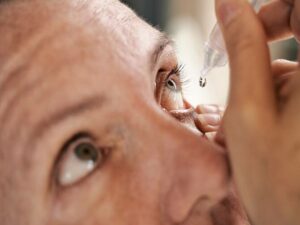The symptoms of HIV in women may vary, but common signs include fatigue, weight loss, and frequent infections. HIV in women can present differently from men, with some symptoms specific to female reproductive health.
It is crucial for women to be aware of these symptoms and seek medical attention to prevent the transmission and progression of HIV. Early diagnosis and treatment can significantly improve the quality of life for women living with HIV. We will explore the symptoms, transmission methods, prevention strategies, and available treatment options for HIV in women.
Table of Contents
Understanding Hiv In Women
HIV prevalence in women worldwide: HIV is a global health crisis, with women being disproportionately affected. According to the World Health Organization (WHO), approximately 18.6 million women are living with HIV. In sub-Saharan Africa, women account for nearly 60% of all people living with HIV. This prevalence suggests the urgent need for targeted interventions and support for women.
Factors contributing to higher HIV risk in women: Several factors contribute to the higher HIV risk in women. Firstly, the biological differences between men and women make women more vulnerable to HIV transmission. The presence of genital ulcers, menstrual bleeding, and a larger exposed surface area increase their susceptibility to infection. Secondly, social and cultural factors, such as gender inequality, violence against women, and lack of access to education and healthcare, further contribute to their risk. Finally, economic disparities and poverty limit women’s ability to negotiate safe sexual practices and access preventive measures.

Credit: www.theguardian.com
Early Signs And Symptoms Of Hiv In Women
Early Signs and Symptoms of HIV in Women
Flu-like symptoms and their significance
Flu-like symptoms such as fever, sore throat, and fatigue can indicate the early stages of HIV infection in women. These symptoms may appear within a few weeks after exposure to the virus. It’s important to note that these flu-like symptoms are not exclusive to HIV, and many other common illnesses can cause similar symptoms. However, if you have engaged in high-risk activities or have been in contact with someone who is HIV positive, it is crucial to get tested for HIV even if your symptoms are mild.
Fatigue and its connection to HIV
Persistent fatigue is another early symptom of HIV infection in women. Fatigue is characterized by feeling extreme tiredness or lack of energy that doesn’t improve with rest. It can affect daily activities and overall quality of life. Fatigue is often accompanied by other symptoms such as muscle aches and joint pain. If you experience prolonged and unexplained fatigue, it’s advisable to seek medical attention and get tested for HIV.
Unexplained weight loss: a red flag
Unexplained weight loss is a concerning symptom that could indicate HIV infection in women. Sudden and unintentional weight loss of 10 or more pounds can be a red flag for numerous underlying medical conditions, including HIV. Weight loss occurs due to changes in metabolism caused by the virus. If you have experienced unexplained weight loss and suspect the possibility of HIV infection, it is essential to consult a healthcare professional and get tested as soon as possible.
Subtle Signals: The Less Obvious Hiv Symptoms In Women
When it comes to HIV, the symptoms can vary significantly from person to person. For women, there are a few less obvious signs that could indicate HIV infection. Chronic yeast infections may be one such indicator. If you’re experiencing recurrent yeast infections that don’t seem to go away despite treatment, it could be a signal of an underlying health condition like HIV.
Another less known symptom is irregular menstrual periods. HIV can affect the menstrual cycle, causing changes such as heavier or lighter flow, missed periods, or irregular cycles. If you notice significant changes in your menstrual patterns, it’s important to get tested for HIV.
Night sweats can also be associated with HIV. While night sweats can happen for a variety of reasons, including menopause or certain medications, if you’re experiencing persistent and severe night sweats accompanied by other HIV symptoms, it’s crucial to seek medical advice and consider HIV testing.
Being aware of these subtle signals is vital in early detection of HIV in women. If you suspect any of these symptoms or have concerns about your health, consult a healthcare professional for proper evaluation and testing.
The Impact Of Hiv On Women’s Reproductive Health
The Impact of HIV on Women’s Reproductive Health
The link between HIV and reproductive complications is significant. Women living with HIV may experience various reproductive health issues. One of the major concerns is mother-to-child transmission of the virus. Without proper interventions, there is a high risk of transmitting HIV from an infected mother to her child during pregnancy, childbirth, or breastfeeding. It is crucial for pregnant women with HIV to receive appropriate medical care and adhere to antiretroviral therapy to reduce the chances of transmission.
Additionally, women with HIV face important decisions about contraception. While many contraceptive options are available to them, certain methods may interact with antiretroviral medication or increase the risk of sexually transmitted infections. It is essential for healthcare providers to offer comprehensive counseling and assist women in making informed choices based on their individual circumstances and preferences.
Managing HIV in the context of reproductive health requires a holistic approach that considers both the wellbeing of women living with HIV and their potential risks for transmission. By addressing these issues, we can work towards ensuring improved reproductive health outcomes for women affected by HIV.
Beyond The Physical: The Emotional Toll Of Hiv In Women
Beyond the Physical: The Emotional Toll of HIV in Women
Addressing mental health challenges in women with HIV
Women living with HIV not only face the physical symptoms and challenges associated with the virus but also battle the emotional toll it takes on their well-being. Stigma and discrimination are major hurdles that women with HIV encounter on a daily basis. The fear of judgment and rejection from society can lead to feelings of shame and isolation, which often exacerbates their mental health struggles.
Support networks play a crucial role in addressing the emotional well-being of women with HIV. These networks can provide a safe space for individuals to share their experiences, seek advice, and receive emotional support from others who understand their journey. Counseling and therapy services tailored to the unique needs of women living with HIV can also help in managing mental health challenges, providing coping mechanisms, and promoting overall well-being.
Navigating The Hiv Testing Process For Women
Regular HIV testing is crucial for women to ensure early detection and treatment of the virus. There are different types of HIV testing available for women, including:
- Antibody tests: These tests detect the presence of HIV antibodies in the blood or saliva.
- Rapid tests: These tests provide results within minutes using a small blood sample.
- Oral fluid tests: These tests involve collecting oral fluid using a swab.
- Home tests: These tests can be done in the comfort of your own home, with results available in about 20 minutes.
Despite the importance of testing, there are often barriers that prevent women from getting tested for HIV. These barriers include lack of awareness, fear of stigma and discrimination, lack of access to testing facilities, and cultural and societal norms.
It is crucial to overcome these barriers through awareness campaigns, providing accessible testing facilities, and promoting education about the importance of regular HIV testing. Early detection and treatment can significantly improve the health outcomes for women living with HIV.
Access To Care: Women’s Hiv Treatment And Support
Access to care is crucial for women living with HIV. Antiretroviral therapy (ART) plays a pivotal role in HIV treatment and serves as the cornerstone of care. It not only suppresses the virus but also helps maintain a healthy immune system. However, women often face unique challenges when accessing HIV treatment. These challenges include social stigmas, stigma within healthcare settings, lack of transportation, and childcare responsibilities. To overcome these barriers, it is important to implement solutions such as targeted outreach programs, sensitization of healthcare providers, and transportation support.
Additionally, women living with HIV require comprehensive supportive care services to address their specific needs and improve their treatment outcomes. These services may include mental health support, reproductive health services, access to contraceptives, and support groups. The integration of these services into HIV care can enhance the overall well-being of women living with HIV.
Ensuring access to care and implementing supportive services are vital steps towards optimizing treatment and improving the quality of life for women living with HIV.
Empowering Women: Preventing Hiv Transmission And Promoting Education
Empowering women is crucial in the prevention of HIV transmission and promoting education. Women play a pivotal role in society, and it is essential to educate and equip them with the necessary knowledge about HIV prevention methods.
Sexual education programs catered specifically towards empowering women are vital. These programs provide women with information about safe sex practices, condom use, and the importance of regular HIV testing. By empowering women with such knowledge, they can make informed decisions regarding their sexual health, reducing the risk of HIV transmission.
Additionally, promoting awareness and addressing misinformation is key in HIV prevention among women. Disseminating accurate information through various channels, such as social media, workshops, and campaigns, can help debunk myths and misconceptions surrounding HIV. It also encourages women to take proactive steps towards protecting themselves and their partners.
| HIV prevention methods for women |
|---|
| Safe sex practices |
| Condom use |
| Regular HIV testing |
Empowering women, providing sexual education programs, and promoting accurate information are essential components in the fight against HIV transmission. By actively involving women in this process, we can create a society where women are informed, empowered, and ultimately, protected from the risks of HIV.
Frequently Asked Questions On Women Hiv Symptoms
What Are The Common Symptoms Of Hiv In Women?
The common symptoms of HIV in women include fatigue, fever, swollen lymph nodes, and recurrent vaginal infections. Other symptoms may include weight loss, night sweats, and skin rashes. However, it’s important to note that HIV symptoms can vary greatly among individuals, so it’s crucial to get tested for a proper diagnosis.
Can Women Experience Different Hiv Symptoms Than Men?
Yes, women may experience unique HIV symptoms that are different from men. Some women may have vaginal yeast infections, pelvic inflammatory disease (PID), or abnormal Pap smears. Additionally, hormonal changes during pregnancy can also impact HIV symptoms. It’s important for women to be aware of these differences and seek medical advice if experiencing any concerning symptoms.
What Are The Long-term Effects Of Hiv In Women?
The long-term effects of HIV in women can be severe if not properly managed. These can include weakened immune system, increased susceptibility to opportunistic infections, and progression to AIDS. HIV can also affect reproductive health, increasing the risk of infertility, miscarriage, and mother-to-child transmission.
Regular medical care and adherence to antiretroviral therapy are crucial in reducing long-term complications.
Conclusion
Being aware of common HIV symptoms in women is crucial for early detection and effective treatment. Symptoms such as frequent infections, weight loss, fatigue, and abnormal vaginal discharge should not be ignored. By recognizing these signs and seeking medical attention promptly, women can better protect their health and prevent the spread of HIV.
Stay informed, stay safe!





/cdn.vox-cdn.com/uploads/chorus_image/image/70234261/GettyImages_1354927455.0.jpg)

